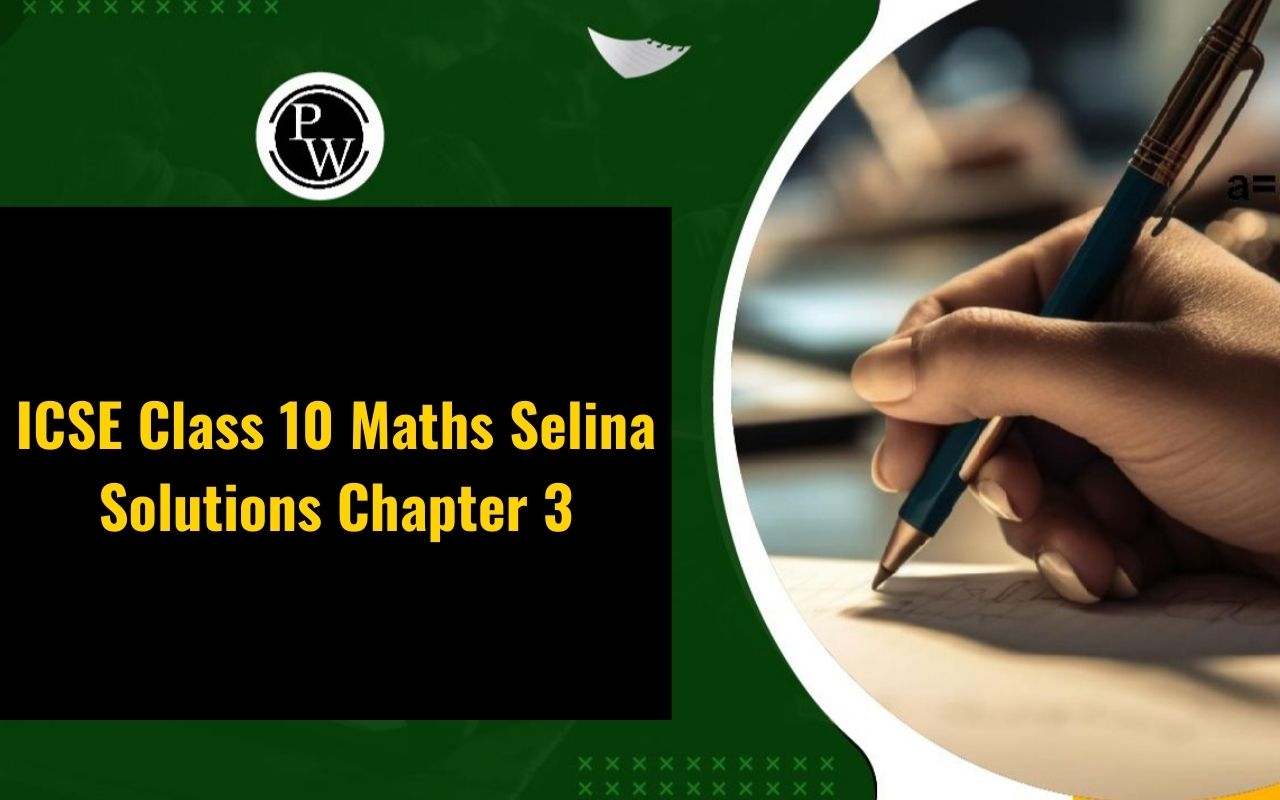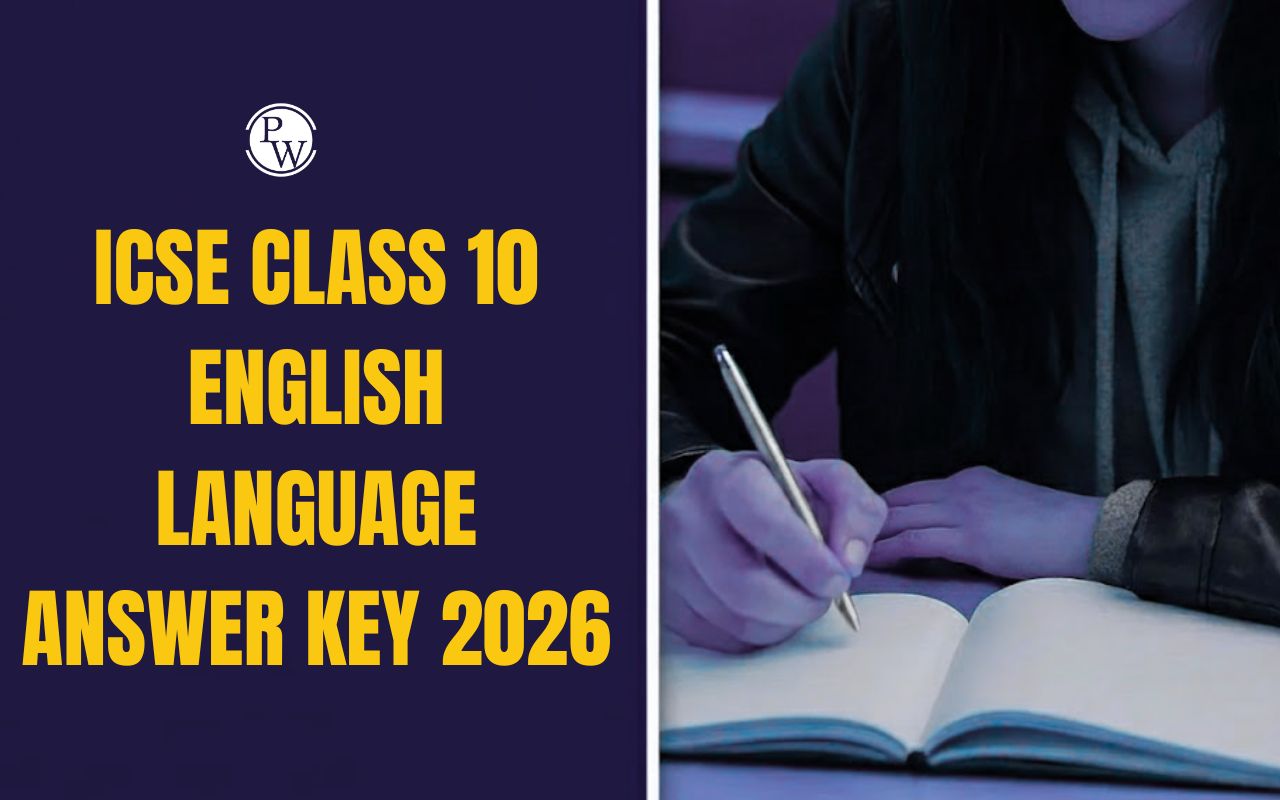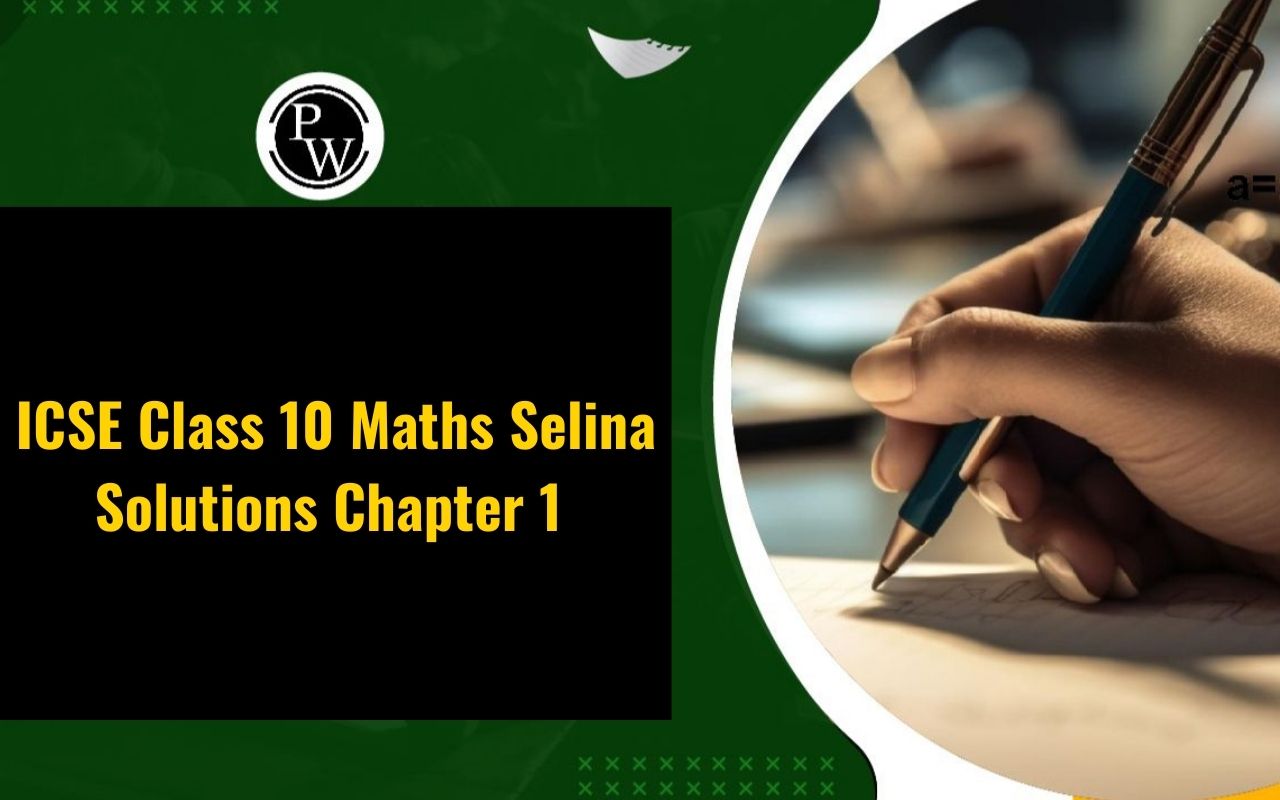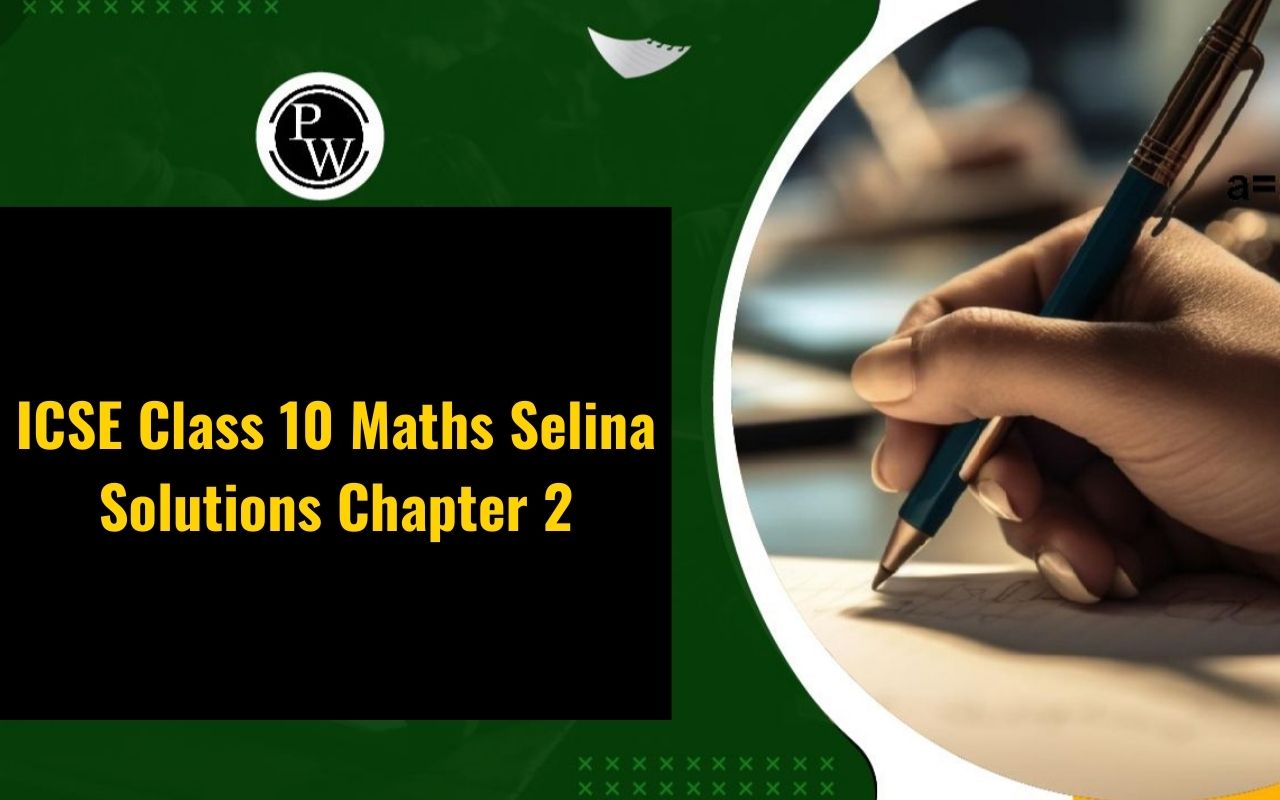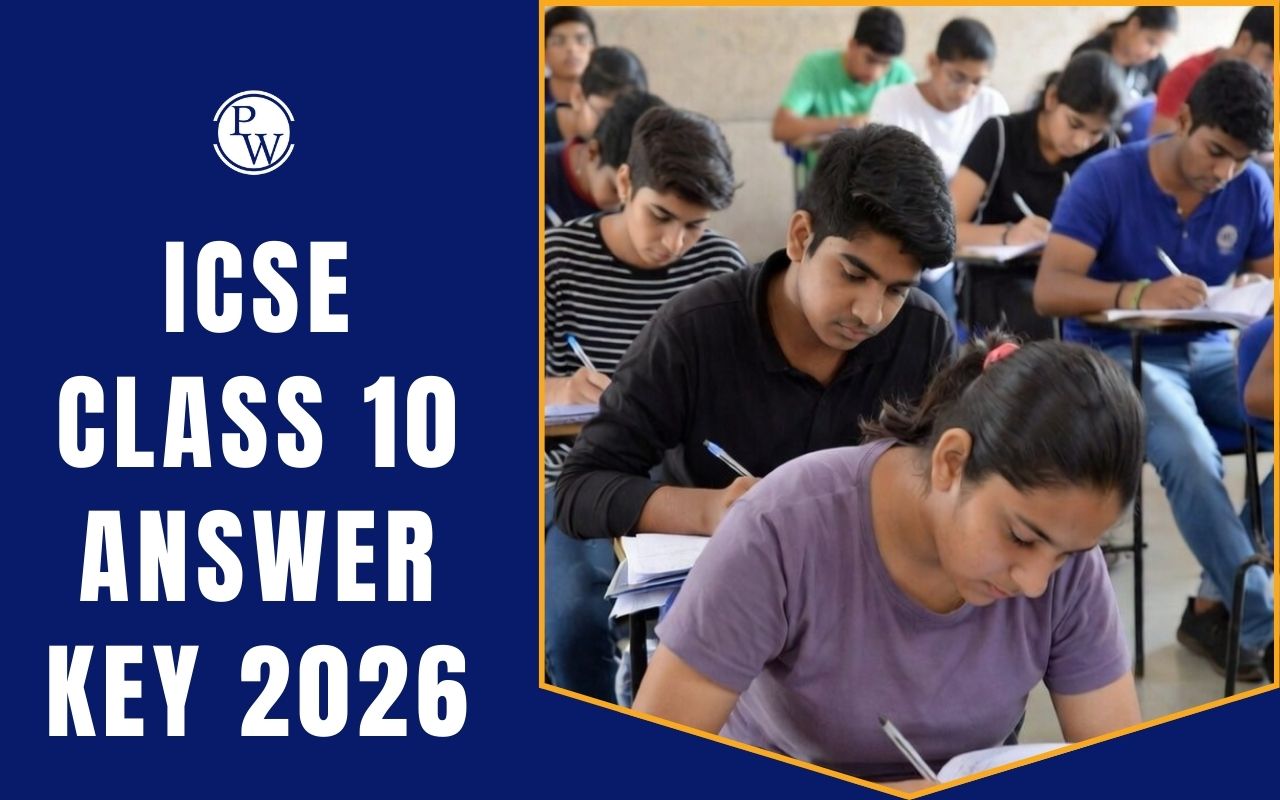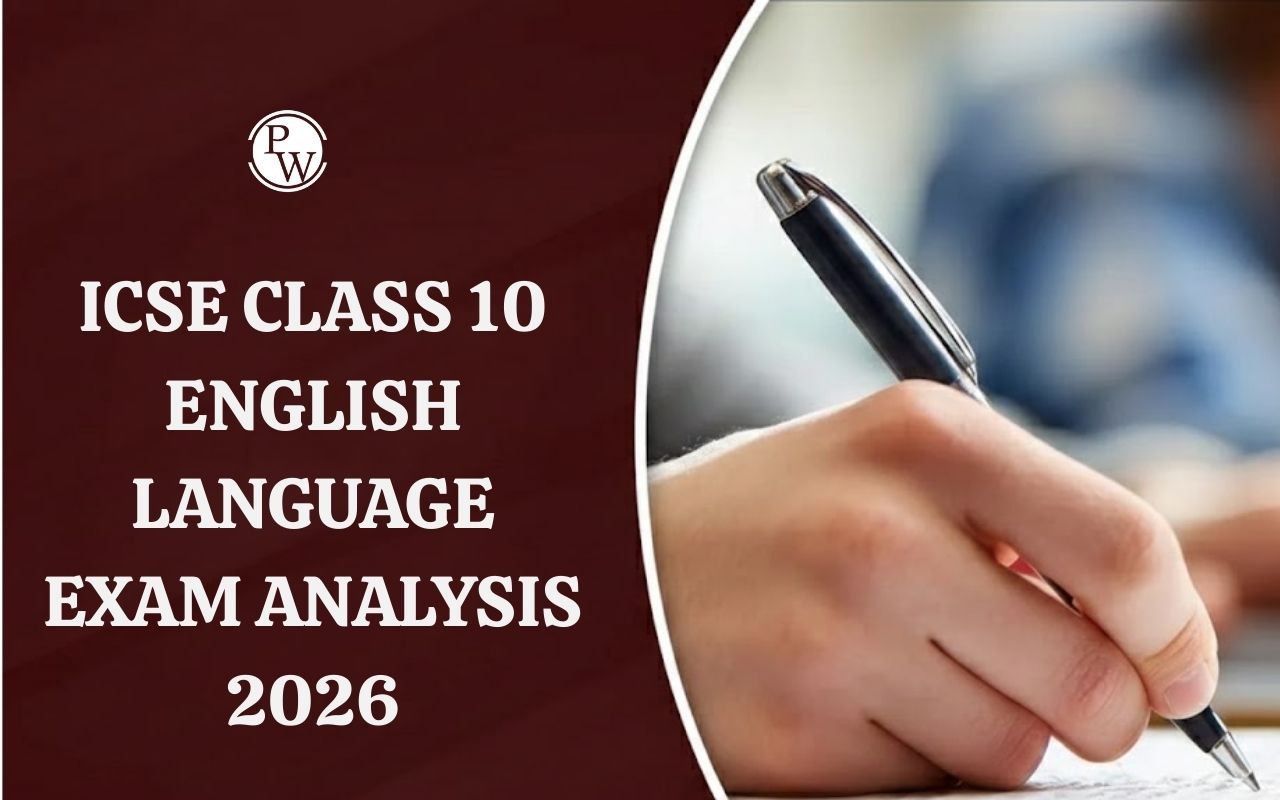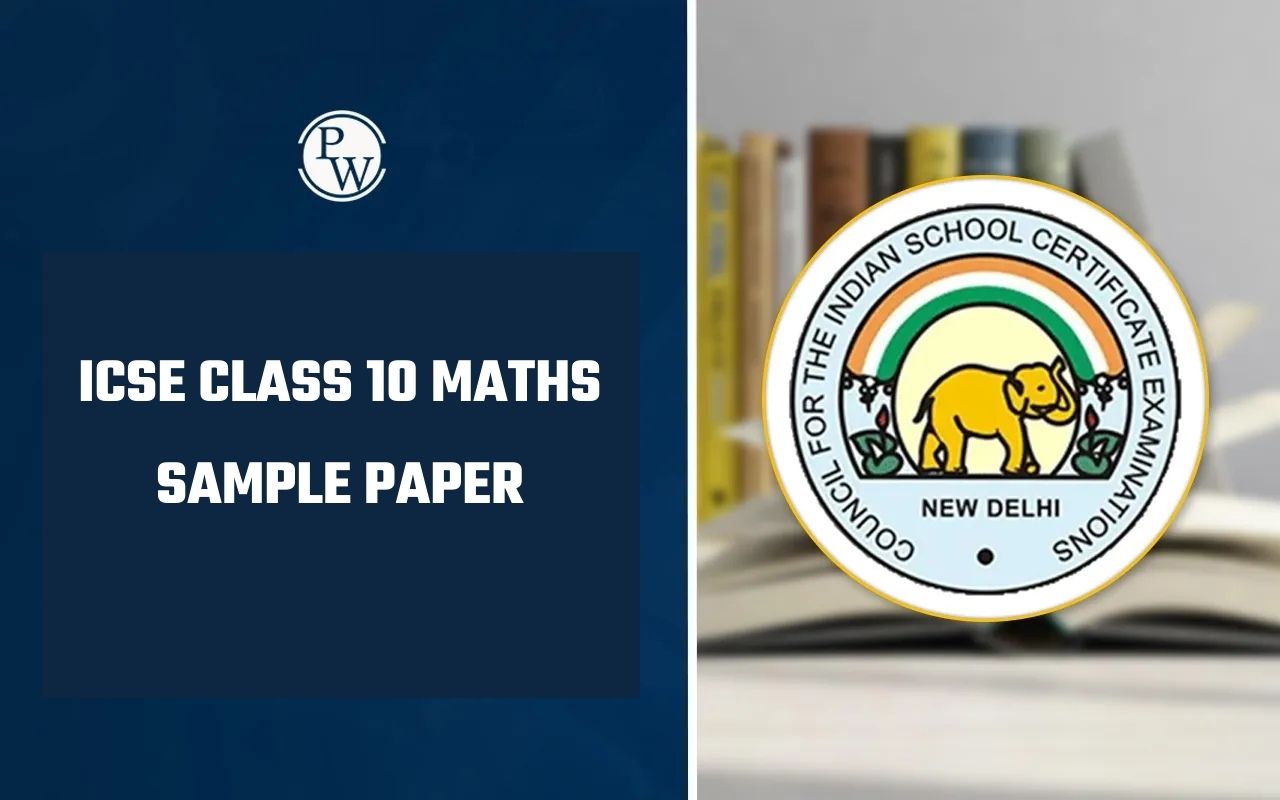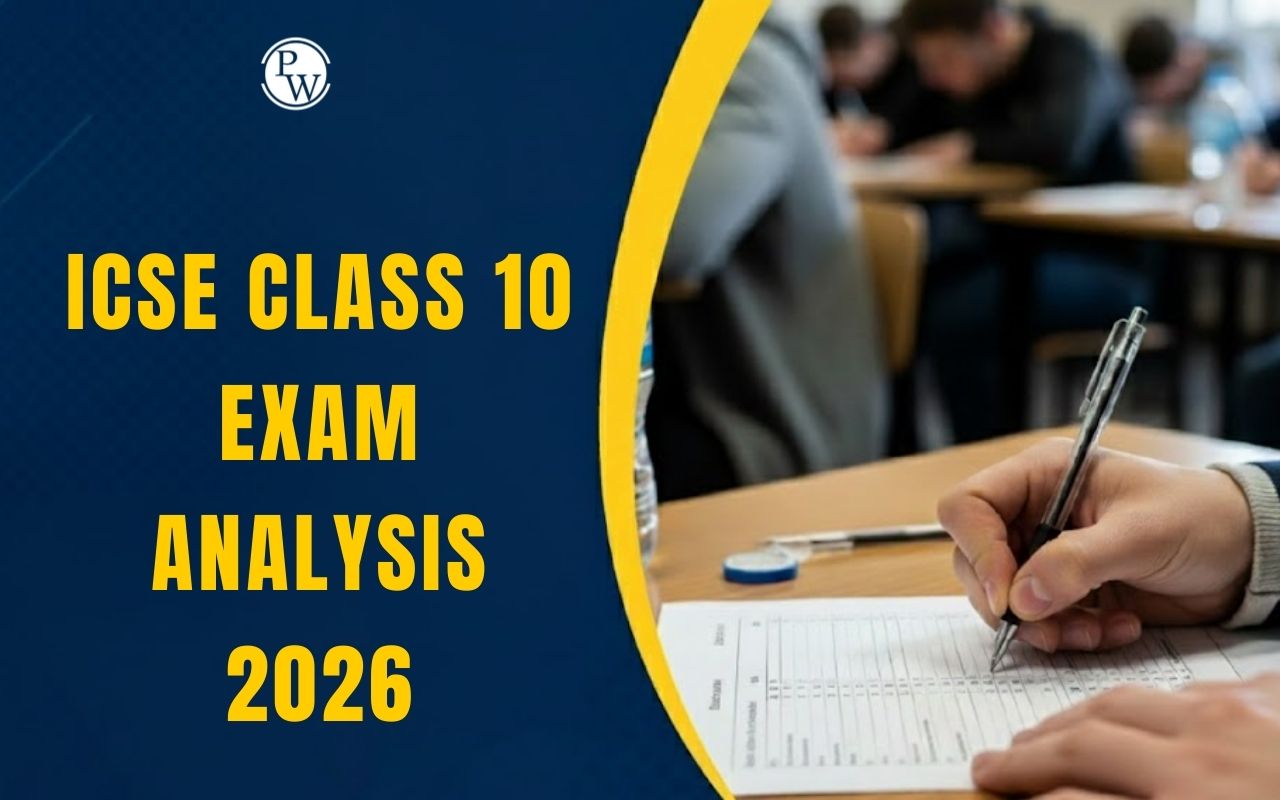
As the ICSE Class 10 board exams start from today, 17 February 2026, students are revising important chapters like Selina Solutions Chapter 2 – Banking (Recurring Deposit Accounts). This chapter explains how recurring deposit (RD) accounts work and why regular monthly deposits help build savings over time.
Students learn to calculate interest on each installment and find the total maturity amount using the RD formula. Through solved examples and practice questions, they understand how deposit amount and time period affect total savings, making this chapter important for exam preparation.
ICSE Class 10 Maths Selina Solutions Chapter 2 Banking (Recurring Deposit Accounts) Overview
The ICSE Class 10 Maths Selina Solutions for Chapter 2 on Banking (Recurring Deposit Accounts) have been created by subject teachers from Physics Wallah. These solutions explain how recurring deposit accounts work in banks.ICSE Class 10 Maths Selina Solutions Chapter 2 PDF
You can find the PDF link for ICSE Class 10 Maths Selina Solutions Chapter 2 below. It has clear explanations and examples by our teachers, helping you understand how recurring deposit accounts in banking work. The solutions show how to calculate savings using compound interest formulas. It is a useful resource for studying and preparing for exams.ICSE Class 10 Maths Selina Solutions Chapter 2 PDF
ICSE Class 10 Maths Selina Solutions Chapter 2 Exercise 2(A) Page No: 23
1. Manish opens a Recurring Deposit Account with the Bank of Rajasthan and deposits Rs. 600 per month for 20 months. Calculate the maturity value of this account, if the bank pays interest at the rate of 10% per annum.
Solution:
From the question, we have Installment per month (P) = Rs 600 Number of months (n) = 20 Rate of interest(r) = 10% p.a. So, S.I = Rs 1,050 Therefore, The amount that Manish will be getting at the time of maturity is = Rs (600 x 20) + 1,050 = Rs 12,000 + 1,050 = Rs 13,050
S.I = Rs 1,050 Therefore, The amount that Manish will be getting at the time of maturity is = Rs (600 x 20) + 1,050 = Rs 12,000 + 1,050 = Rs 13,050
2. Mrs. Mathew opened a Recurring Deposit Account in a certain bank and deposited Rs. 640 per month for 4 1 / 2 years. Find the maturity value of this account, if the bank pays interest at the rate of 12% per year.
Solution:
Installment per month (P) = Rs 640 Number of months (n) = 54 Rate of interest (r) = 12% p.a. So, S.I = Rs 9,504 Therefore, The amount that Mrs. Mathew will be getting at the time of maturity is = Rs (640 x 54)+ Rs 9,504 = Rs 34,560 + Rs 9,504 = Rs 44,064
S.I = Rs 9,504 Therefore, The amount that Mrs. Mathew will be getting at the time of maturity is = Rs (640 x 54)+ Rs 9,504 = Rs 34,560 + Rs 9,504 = Rs 44,064
3. Each of A and B both opened recurring deposit accounts in a bank. If A deposited Rs 1,200 per month for 3 years and B deposited Rs 1,500 per month for 2½ years; find, on maturity, who will get more amount and by how much? The rate of interest paid by the bank is 10% per annum.
Solution:
Calculating for A: Installment per month (P) = Rs 1,200 Number of months (n) = 36 Rate of interest (r) = 10% p.a. So, S.I = Rs 6,660 Hence, The amount that A will be getting at the time of maturity is = Rs (1,200×36) + Rs 6,660 = Rs 43,200 + Rs 6,660 = Rs 49,860 Calculating for B: Installment per month (P) = Rs1,500 Number of months (n) = 30 Rate of interest(r) = 10% p.a. So,
S.I = Rs 6,660 Hence, The amount that A will be getting at the time of maturity is = Rs (1,200×36) + Rs 6,660 = Rs 43,200 + Rs 6,660 = Rs 49,860 Calculating for B: Installment per month (P) = Rs1,500 Number of months (n) = 30 Rate of interest(r) = 10% p.a. So,  S.I = Rs 5,812.50 Hence, The amount that B will be getting at the time of maturity is = Rs (1,500 x 30) + Rs 5,812.50 = Rs 45,000 + Rs 5,812.50 = Rs 50,812.50 Now, Difference between both the amounts is = Rs 50,812.50 – Rs 49,860 = Rs 952.50 Therefore, B will get more amount than A by Rs 952.50
S.I = Rs 5,812.50 Hence, The amount that B will be getting at the time of maturity is = Rs (1,500 x 30) + Rs 5,812.50 = Rs 45,000 + Rs 5,812.50 = Rs 50,812.50 Now, Difference between both the amounts is = Rs 50,812.50 – Rs 49,860 = Rs 952.50 Therefore, B will get more amount than A by Rs 952.50
4. Ashish deposits a certain sum of money every month is a Recurring Deposit Account for a period of 12 months. If the bank pays interest at the rate of 11% p.a. and Ashish gets Rs 12,715 as the maturity value of this account, what sum of money did he pay every month?
Solution:
Let us assume the installment per month (P) as Rs y Number of months (n) = 12 Rate of interest (r) = 11%p.a. So, S.I = Rs 0.715y Hence, The amount at maturity will be = Rs (y x 12) + Rs 0.715y = Rs 12.715y Given that the maturity value = Rs 12,715 So, on equating we have Rs 12.715y = Rs 12,715 y = 12,715/ 12.715 = Rs 1,000 Therefore, the sum of money paid by Ashish every month is Rs 1,000
S.I = Rs 0.715y Hence, The amount at maturity will be = Rs (y x 12) + Rs 0.715y = Rs 12.715y Given that the maturity value = Rs 12,715 So, on equating we have Rs 12.715y = Rs 12,715 y = 12,715/ 12.715 = Rs 1,000 Therefore, the sum of money paid by Ashish every month is Rs 1,000
5. A man has a Recurring Deposit Account in a bank for 3½ years. If the rate of interest is 12% per annum and the man gets Rs 10,206 on maturity, find the value of monthly installments.
Solution:
Let’s assume that the installment per month (P) = Rs y Number of months (n) = 42 Rate of interest (r) = 12% p.a. So, S.I = Rs 9.03y Hence, The amount at maturity will be = Rs (y x 42) + Rs 9.03y = Rs 51.03y But given maturity value = Rs10,206 So, on equating we have Rs 51.03y = Rs 10206 y = 10206/ 51.03 = Rs 200 Therefore, the value of monthly installment is Rs 200
S.I = Rs 9.03y Hence, The amount at maturity will be = Rs (y x 42) + Rs 9.03y = Rs 51.03y But given maturity value = Rs10,206 So, on equating we have Rs 51.03y = Rs 10206 y = 10206/ 51.03 = Rs 200 Therefore, the value of monthly installment is Rs 200
ICSE Class 10 Maths Selina Solutions Chapter 2 Exercise 2(B) Page No: 24
1. Pramod deposits Rs 600 per month in a Recurring Deposit Account for 4 years. If the rate of interest is 8% per year; calculate the maturity value of his account.
Solution:
Given, Installment per month (P) = Rs 600 Number of months (n) = 48 Rate of interest (r) = 8% p.a. So, S.I = Rs 4,704 Hence, The amount that Pramod will be getting at the time of maturity is = Rs (600 x 48) + Rs 4,704 = Rs 28,800 + Rs 4,704 = Rs 33,504
S.I = Rs 4,704 Hence, The amount that Pramod will be getting at the time of maturity is = Rs (600 x 48) + Rs 4,704 = Rs 28,800 + Rs 4,704 = Rs 33,504
2. Ritu has a Recurring Deposit Account in a bank and deposits Rs 80 per month for 18 months. Find the rate of interest paid by the bank if the maturity value of account is Rs 1,554.
Solution:
Given, Installment per month (P) = Rs 80 Number of months (n) = 18 Let rate of interest (r) = r % p.a. S.I = 11.4r Hence, the amount at the time of maturity will be = Rs (80 x 18) + Rs (11.4r) And given maturity value = Rs 1,554 So, on equating Rs (80 x 18) + Rs (11.4r) = Rs 1,554 11.4r = Rs 1,554 – Rs 1,440 r = 114/ 11.4 = 10 % Therefore, the rate of interest paid by the bank is 10 %
S.I = 11.4r Hence, the amount at the time of maturity will be = Rs (80 x 18) + Rs (11.4r) And given maturity value = Rs 1,554 So, on equating Rs (80 x 18) + Rs (11.4r) = Rs 1,554 11.4r = Rs 1,554 – Rs 1,440 r = 114/ 11.4 = 10 % Therefore, the rate of interest paid by the bank is 10 %
3. The maturity value of a R.D. Account is Rs 16,176. If the monthly installment is Rs 400 and the rate of interest is 8%; find the time (period) of this R.D Account.
Solution:
Given, Installment per month (P) = Rs 400 Let the time, number of months (n) = n Rate of interest (r) = 8 % p.a. So, at the time of maturity the value will be = Rs (400 x n)+ Rs 4n(n + 1)/3 And, given maturity value = Rs 16,176 So, on equating Rs (400x n) + 4n(n + 1)/3 = Rs 16,176 1200n +4n 2 + 4n = Rs 48,528 4n 2 + 1204n = Rs 48,528 n 2 + 301n – 12132 = 0 (n + 337)(n – 36) = 0 n = -337 (not considered as time cannot be negative) or n = 36 Therefore, the number of months (time) = 36 months = 3years
So, at the time of maturity the value will be = Rs (400 x n)+ Rs 4n(n + 1)/3 And, given maturity value = Rs 16,176 So, on equating Rs (400x n) + 4n(n + 1)/3 = Rs 16,176 1200n +4n 2 + 4n = Rs 48,528 4n 2 + 1204n = Rs 48,528 n 2 + 301n – 12132 = 0 (n + 337)(n – 36) = 0 n = -337 (not considered as time cannot be negative) or n = 36 Therefore, the number of months (time) = 36 months = 3years
4. Mr. Bajaj needs Rs 30,000 after 2 years. What least money (in multiple of Rs 5) must he deposit every month in a recurring deposit account to get required money after 2 years, the rate of interest being 8% p.a.?
Solution:
Let’s assume the installment per month to be Rs P Number of months (n) = 24 Rate of interest = 8% p.a. So, 
5. Mr. Richard has a recurring deposit account in a post office for 3 years at 7.5 % p.a. simple interest. If he gets Rs. 8,325 as interest at the time of maturity, find:
(i) the monthly instalment
(ii) the amount of maturity
Solution:
Let’s assume the monthly installment be Rs P Interest over the period = Rs. 8,325 Rate of interest = 7.5% Time = 3 years = 36 months (i) Therefore, the monthly installment is Rs 2,000 (ii)
Therefore, the monthly installment is Rs 2,000 (ii)  Therefore, the amount of maturity is Rs 80,325
Therefore, the amount of maturity is Rs 80,325
Last Minute Tips for ICSE Class 10 Maths Selina Solutions Chapter 2
As the ICSE board exams approach, quick and smart revision becomes very important. Chapter 2 on Recurring Deposit Accounts is scoring if your concepts and formulas are clear. Focus on accuracy and proper presentation to avoid losing easy marks.
-
Revise the RD formula carefully and understand each term used in the calculation.
-
Practice 3–5 important sums to strengthen your calculation speed.
-
Remember that time is in months and the rate of interest is per annum.
-
Write the formula first in the exam before substituting values.
-
Solve step-by-step to reduce calculation mistakes.
-
Check your final answer properly, especially the maturity amount and interest earned.
ICSE Class 10 Maths Selina Solutions Chapter 2 FAQs
What is a recurring deposit account?
How do recurring deposit accounts benefit savers?
How is maturity value calculated for a recurring deposit account?
What happens if I miss depositing money in my recurring deposit account?


